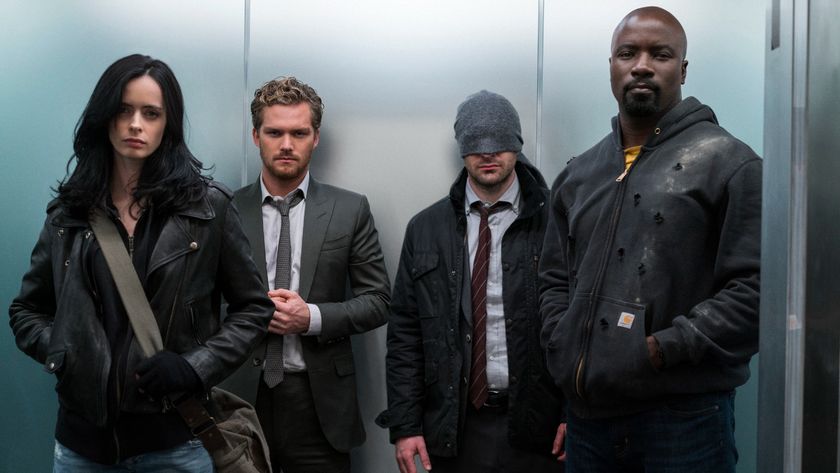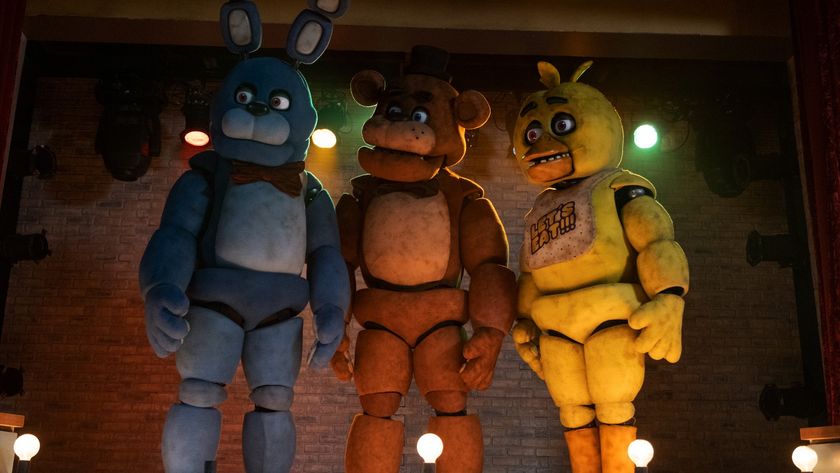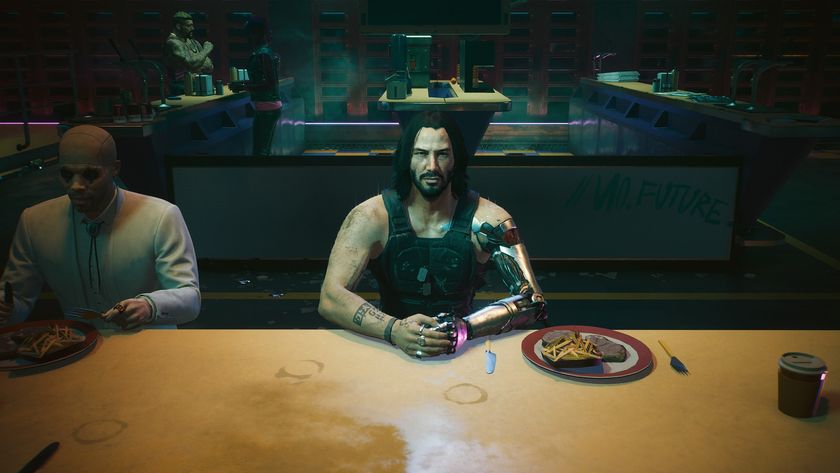Why you can trust 12DOVE
Truth truly is stranger than fiction. Had Peter Jackson tried to make a film about two fictional '50s school girls immersing themselves in a fantasy world populated by life-sized clay figures then bashing in one of their mum's heads with a brick, there'd have been more arched eyebrows than a roomful of Kate Winslets. But the story was a true one, and Heavenly Creatures was made. Similarly, would Hollywood have come up with the fictional tale of a pornographer (hospitalised and wheelchair-bound by an unknown assailant's bullet), his out-of-control, AIDS-infected bisexual girlfriend and the massive porn empire he established? It's doubtful. But that was a true story as well, as The People Vs Larry Flynt can testify.
For everyone out there who's ever complained that no-one makes intelligent, thoughtful films any more, and that vapid, moronic visual treats such as Independence Day and Twister are rotting our minds and failing to nourish the adult within, here's one for you. Helmed solidly and entertainingly by Amadeus and One Flew Over The Cuckoo's Nest director Milos Forman, and raising enough real-life issues to turn the post-cinema pub conversation from "...and there's this great explosion" to something more intellectually stimulating, The People Vs Larry Flynt is more wry smiles and furrowed brows than sweaty palms and edge-of-seat excitement.
That said, it's often uncomfortable to sit through, giving centre stage to disease and disfigurement, both emotional and physical. Half the story of the rise of a porn empire and half the catalogue of Larry's subsequent courtroom battles, Flynt's narrative makes for two hours of people sitting in rooms wearing nasty late '70s/early '80s clothing. The second half of the film (the crippling attempt on Flynt's life, his years of constant pain, and his girlfriend Althea's decline from drug addict into "junkie AIDS bitch") gives us precious little to laugh about, but is never less than gripping - this despite, or perhaps because Larry comes across as one of the most obstinate, unpleasant, genuinely unlikeable gits the world has ever seen.
"I'm your dream client. I'm rich, and I'm always in trouble," says Flynt to his young, idealistic lawyer Alan Isaacman, summing up the various conflicts that push the story from fun-filled anti-establishment opening into much bleaker waters. You can guess how it goes: Larry and Jimmy start out as white-trash moonshine peddlers and end up as rich, well-dressed porn merchants. Larry starts out having fun running his strip club and ends up fat, disabled and with a terminally ill wife. The Hustler team starts out slagging off genteel Playboy's "How To Hook Up Your Quadrophonic Stereo" features and ends up hiding behind the US constitutional right to free speech. The problem is that the script comes to rely on contemporary court transcripts, and pure entertainment value recedes through the film's running time, to be replaced by weighty thoughtfulness. But this is a recurring problem with all real-life stories: by definition, the characters start off young and feisty and end up old and jaded (or dead).
One of Flynt's great strengths is its performances. In a cast of relative unknowns, Harrelson was bound to stand out - and he does, brilliantly. This is a dream role, beginning with the curly permed, rutting scallywag and ending with the foul-mouthed fat guy and his slurred voice and gold-plated wheelchair. Even better is Courtney Love as Althea, Larry's only true love. The ex-Mrs Cobain makes a thrilling entrance as an underage dancer, slinking her way through a truly filthy strip routine that reveals all the previous acts to be floppy-breasted, vacant-eyed no-marks, and at the same time highlights the by-the-numbers nonsense perpetrated by the hyper-buffed bods and flashy choreography of Striptease and Showgirls. Love acts the decline into drugs and illness with perfect believability - as well she ought.
Worthy and weighty without ever being boring, Flynt's cogs are oiled by a consistently funny script from the team responsible for that other lollopping, gets-nowhere-fast biopic, Ed Wood. The similarities between the two are many, not least that you can enjoy both without knowing all there is to know about their respective subjects, be he the director of Plan 9 From Outer Space or the publisher of a portfolio ranging from Asian Tail to Barely Legal. Which, in either case, is probably no bad thing.
Far more All The President's Men than Showgirls, Flynt sidesteps skin-flick visuals for an often painfully intense look at the madness of the American courtroom.
The Total Film team are made up of the finest minds in all of film journalism. They are: Editor Jane Crowther, Deputy Editor Matt Maytum, Reviews Ed Matthew Leyland, News Editor Jordan Farley, and Online Editor Emily Murray. Expect exclusive news, reviews, features, and more from the team behind the smarter movie magazine.

Marvel TV boss isn't ruling out other Defenders re-joining the MCU after Daredevil: Born Again: "It is certainly something that is creatively extremely exciting"

Five Nights at Freddy's 2 release date, cast, plot, trailer, and everything we know about the upcoming horror sequel

Cyberpunk 2 associate game director reveals his greatest development secret: 10 hour loops of music like "Epic Sax Guy" that "gives me insane focus and clarity"
Most Popular



